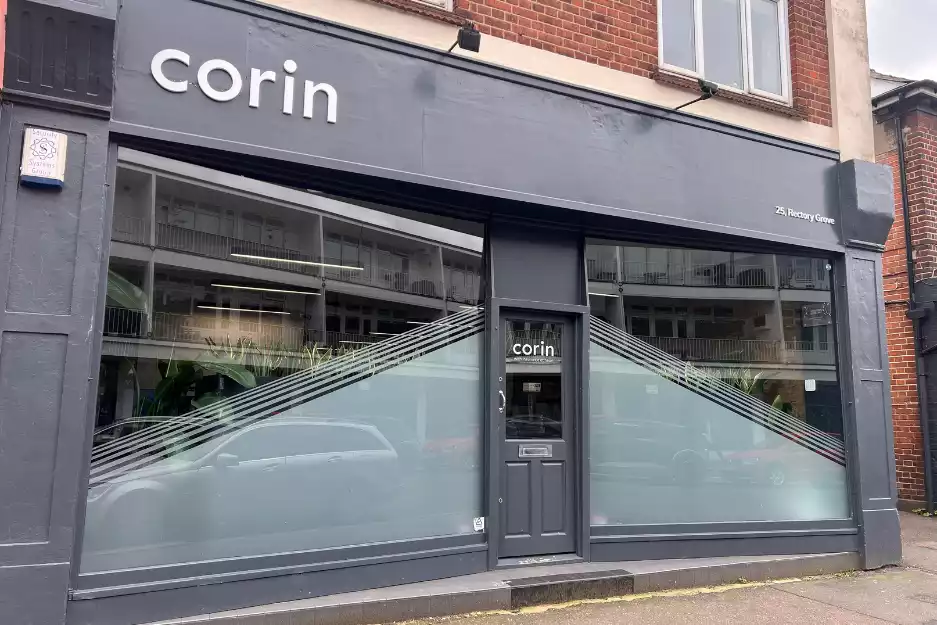-
AllAnytime Fitness Gym Art Beer Of The Week Blog Bus Fares Bus Service Business Business Expo C2C Care Care Home Charity Children Christmas Cinema City Status Cliffs Pavilion Cliffs Pavilion Review Cocktail Recipes College Community Competition Construction Coronation Coronavirus Dannielle Emery Design Easter Education Electoral changes Leigh on sea Emma Smith Employment Emsella Chair Environment Essex & Suffolk Water News Essex Police Essex Wildlife Trust News Events Family Fun Fashion Festival Film Finance Fitness Food Food & Drink Football Foulness Bike Ride Fresh Face Pillow Company Gardening General Election Hair & Beauty Halloween Harp Havens Havens Hospice Havens Hospices Havens Hospices Health & Fitness Health & Beauty Health & Fitness Healthwatch Southend Historicaleigh History Holidays Housing Indian Indirock Jubilee Karen Harvey Conran Kids Kids Blogs Kids Competitions Kids Reviews Lazydays Festival Legal Legal Eagle Leigh Art Trail Leigh Folk Festival Leigh Library Leigh On Sea Finds Leigh Road Leigh Town Council Leigh Town Council Press Release Leigh on Sea Leigh on Sea Sounds Leigh on sea Folk Festival Leigh on sea Marathon Leigh on sea Town Council Leigh on sea man breaks marathon record Leigh on sea news Lifestyle Livewell Southend Press Release LoS Shop London London Southend Airport Los Shop Marathon Melinda Giles Mortgage Angel blog Mortgages Motherofalloutings Mughal Dynasty Music My Mortgage Angel MyLoS NHS News News Newsletter Offers Outfit Of The Week Palace Theatre Parenting Parking Pets Picture Of The Week Pier Politics Press Release Press Release Southend City Council Professional Property Property Of The Week RSPCA Ray Morgan Re:loved Recipes Recycling Restaurant Restaurant Review Restaurants Review Roads Rotary Club Royal Hotel Royal Visit SAVS Schools Seafront Shopping Shows & Music Review Shows & Music Shows & Music Review Southend Southend Airport Southend Borough Council Press Release Southend City Bid News Southend City Council Southend City Council Press Release Southend City Council Press Release Southend Community Safety Southend Hospital News Southend In Sight Southend In Sight Southend In Sight Press Release Southend on Sea Sport The Mortgage Mum The One Love Project The Ship Hotel Theatre Theatre Blog Theatre Review Theatre review Transport Travel Travel Veolia Village Green Volunteer Weddings Whats On c2c
Council Joins Calls For Wider National Devolution

Council Joins Calls For Wider National Devolution
Tuesday 5th May 2015
The Council is supporting calls for major devolution to be handed to mid-sized UK cities, including Southend-on-Sea.
A national report released late last week by the Key Cities group (of which Southend-on-Sea is part), calls for local control of taxes ranging from VAT to stamp duty and council tax.
Combined with five year funding settlements over a range of policy areas including transport, housing and skills, empowering local authorities in this way would save the Government £2.5 billion every year, the report argues.
Power, people and places: A Manifesto for devolution to Britain’s Key Cities is the first output from a joint research project commissioned by Key Cities from think tank ResPublica. It provides a blueprint for city devolution which can be rolled out across the country, and recognises that the UK’s mid-sized cities are the ‘missing multipliers’ through which economic growth can be stimulated.
The manifesto calls on the next Government to agree to five-year funding settlements, for areas including employment, skills, transport, housing, and infrastructure, which are key constraints on city growth. Importantly it calls for the freedom to set and retain local taxes, such as council tax, business rates, and other concessions appropriate to local circumstances.
The report makes the case that Key Cities and public sector organisations within them can contribute immediately to economic growth. It shows how cities can strengthen their role if the Government devolves new powers. In particular, it argues that Key Cities have the “scale and variety” to test new ways of pursuing economic development and delivering public services.
Rob Tinlin, Chief Executive of Southend-on-Sea Borough Council, says: “We are proud to be a part of the Key Cities group, and to stand behind the launch of this report today. We strongly believe in the power of devolution. There is no ideal scale of devolution and it does not just need to be big cities or metropolitan areas. Mid-sized cities from Southend-on-Sea to Plymouth can test innovation in public services and deliver growth right now.
“We are already leading the way in a number of sectors which are essential to increasing the UK’s global competitiveness and building a high-skilled economy, and devolution can help us to take that even further.”
Dave Smith, Chief Executive of Sunderland City Council and Chair of Key Cities Chief Executives Group, said:
“The Key Cities group was formed to bolster the UK’s prosperity and provide our cities with more opportunities. Our manifesto, Power, people, and places, demonstrates our ability to generate growth and drive innovation at the cutting-edge of our economy.
“With a more stable financial settlement from central government and new fiscal powers, Key Cities can be an important part of building a new economy based on high skilled jobs and high-value added production. Now is a critical moment to seize this generational opportunity for our cities and our country.
“The next Government must provide our members with the devolutionary powers needed to support local businesses and communities. Only then will we be able to fully maximise our global competiveness."
Philip Blond, Director of ResPublica, said:
“The Government really needs to give Key Cities control over financial policies which affect local economies. If they allowed this to happen, the Treasury would see bigger returns and the economic output of the country would grow as a whole.
“In addition to the national benefit, communities would benefit from stronger local economies. This would allow individuals to prosper without having to rely on welfare payments because of increased job opportunities.”
Power, people and places sets out how Key Cities members are pioneering a new model of collaboration based on shared economic expertise rather than geographical proximity, which is critical to answering the productivity challenges the UK faces".
ADD A COMMENT
Note: If comment section is not showing please log in to Facebook in another browser tab and refresh.
























